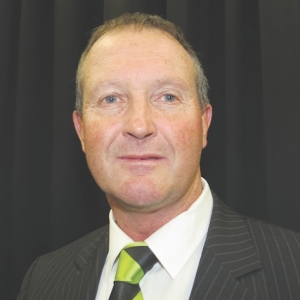It was put out there by PETA, in the US – People for the Ethical Treatment of Animals. The animal rights brigade is also keen on testtube meat, the first patty of which cost US$330,000 and no, that’s not a misprint.
Apparently the reviews were mixed so they are planning to add fat cells for flavour. Aside from making Mary Shelly proud I bet they’ll be lining up to buy artificial milk-like stuff called Muufri.
As meat and fibre farmers we’ve got to seriously lift our game when it comes to hearts and minds. Just look at the way saturated fats – demonised for decades – are now being reappraised by scientists as neutral and some saturated fats may in fact be good for you.
On social media, I’ve seen eager young things in New York City protesting against wool outside retailers, holding placards that’ll make you blood boil. These call on people to boycott wool which means they must be wearing nylon and polyester.
Who’d think they’d be champions of big oil? Of course, no animal has suffered in the production of oil and there’s no pollution either. These activists love oil so much they wear it next to their skin.
These protests in New York weren’t just against Australian wool, but all wool. Placards said ‘wool hurts sheep’ and one had a photo of sheep that looked like a stock truck had run over it. This isn’t new.
Our wool exporters will tell you some people overseas think wool is like fur, for which the sheep has to die. Activists have even carried ‘boycott wool fur’ placards. Some do not realise wool is natural, sustainable and renewable. This is what we’re up against.
So where were the farmers outside those stores next day demonstrating shearing? And handing out wool to passers-by, the newly shorn sheep alive and well, sending a most powerful message. Nobody there.
This is why we need a collective voice to educate, innovate and invest in wool’s future. Alas not one single dollar is set aside for what I propose above. There’s not one dollar to counter the lies of activists. This is why we farmers need to look at a wool levy.
Wool prices may be up 15% on 2013, but this is supply and demand. With sheep numbers now below 30 million and genetic research skewed towards meat, we are going backwards.
You cannot celebrate higher prices when wool exports in Australia are expected to fall 7%. This is race-to-the-bottom stuff and we shouldn’t kid ourselves otherwise.
The wool levy referendum takes place on October 10 and asks wool producers, like me, to back a new industry-good body to be funded by a levy on each kilogram of wool, at the first point of sale.
It is rare for me to say ‘yes’ to more spending but, speaking personally, I will be voting for a levy. Speaking as your chair of Federated Farmers Meat & Fibre this is, of course, your individual business decision.
As wool growers we’re in at the grassroots, but so are some animal rights movements. These movements are better organised and funded than we are.
There is no place for complacency on this and a simple Google search will tell you why.
• Rick Powdrell is Federated Farmers Meat & Fibre chairman.

















